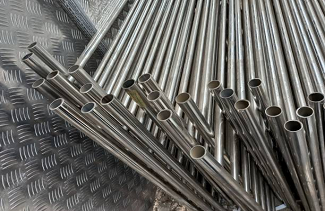
Battery Manufacturing: Navigating the Dual Challenges of Corrosive Environments and Dry Conditions
- Views:0
- Author:
- Publish Time:2025-09-11
- Origin:
As the demand for lithium batteries and renewable energy solutions skyrockets, the manufacturing environments for battery plants are becoming increasingly complex. These facilities face unique challenges, particularly the need to manage corrosive media and ultra-dry conditions. Selecting the right materials, such as stainless steel pipes and tubes, is crucial for ensuring operational efficiency and longevity. Let’s delve into how stainless steel can meet these challenges head-on.

Understanding the Challenges in Battery Manufacturing
1. Corrosive Media
In battery production, various chemicals and electrolytes are used, which can lead to significant corrosion challenges.
Impact on Equipment: Corrosive substances can degrade equipment quickly, leading to costly downtime and maintenance.
Material Selection: It’s essential to choose materials that can withstand these harsh conditions without compromising structural integrity or safety.
2. Ultra-Dry Environments
Battery manufacturing often requires extremely low humidity levels to prevent moisture contamination, which can affect product quality.
Humidity Control: Maintaining a dry environment is crucial for the performance of lithium batteries.
Material Durability: Materials need to be resistant to both corrosion from chemicals and degradation from dry conditions.
Why Choose Stainless Steel Pipes and Tubes?
1. Superior Corrosion Resistance
Stainless steel, particularly grades like 316, offers outstanding resistance to corrosive media commonly found in battery manufacturing.
Longer Lifespan: This resistance extends the life of your equipment, reducing the need for frequent replacements.
Safety Assurance: Using high-quality stainless steel ensures that your systems remain safe and reliable, even in challenging environments.
2. Thermal Stability
Stainless steel pipes and tubes maintain their integrity under varying temperatures, making them suitable for the temperature fluctuations often found in manufacturing processes.
Consistent Performance: This stability contributes to maintaining the strict humidity control necessary for battery production.
Enhanced Efficiency: A reliable material helps streamline operations, ensuring that production timelines are met without interruptions.
3. Low Maintenance Requirements
The durability of stainless steel translates to lower maintenance costs over time, allowing your team to focus on production rather than repairs.
Cost-Effective: Reduced downtime and maintenance lead to significant cost savings in the long run.
Ease of Cleaning: Stainless steel surfaces are easy to clean, essential for maintaining the ultra-dry conditions required in battery plants.
Invest in Quality for Future Success
Navigating the challenges of corrosive media and dry environments in battery manufacturing requires careful material selection.
Ready to enhance the durability and performance of your battery plant? Contact us today to learn more about our stainless steel solutions designed specifically for the demands of lithium battery manufacturing!















